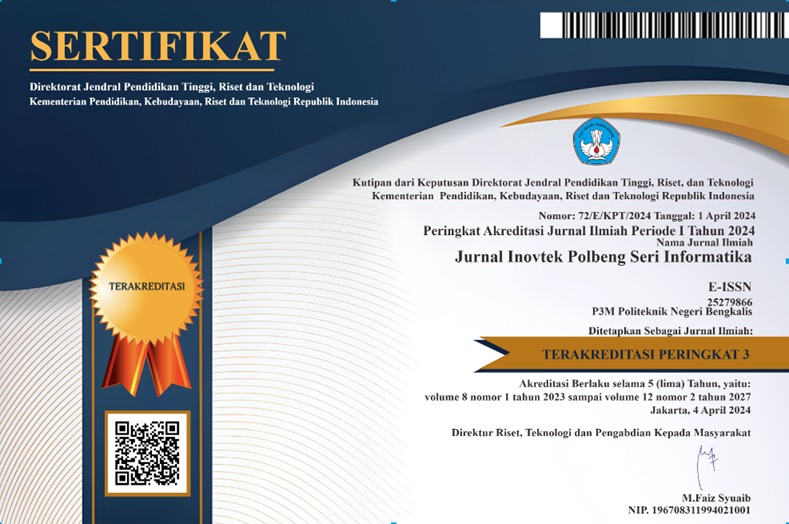Utilization of the Internet of Things for Improving Water Quality Management and Waste Efficiency in the Tofu Industry
DOI:
https://doi.org/10.35314/khhtng77Keywords:
Internet of Things, water quality, Waste Management, TDS Sensor, pH sensorAbstract
In Bengkalis, the challenges faced by the tofu industry are related to the use of mineral-rich, yellow-colored peat water, which often disrupts the quality and consistency of the products. To address this, this research combines Internet of Things (IoT) technology with Total Dissolved Solids (TDS) and pH sensors, integrating real-time monitoring and control of water quality and waste processing efficiency. The implementation of IoT enables automatic measurement and management of water and waste conditions, adaptation to fluctuations, and enhanced waste management effectiveness. Initial results show an improvement in water quality with a 20% reduction in TDS and stabilization of pH from 6.5 to 7.4, as well as an increase in waste processing efficiency with a 30% reduction in the volume of waste disposed of. The application of this technology not only supports environmental and economic sustainability in Bengkalis but also offers significant operational cost savings and better compliance with environmental regulations. This finding is expected to encourage the adoption of similar technologies in other tofu industries in areas with similar water conditions, promoting greener and more sustainable production practices.
Downloads
Published
Issue
Section
License
Copyright (c) 2024 INOVTEK Polbeng - Seri Informatika

This work is licensed under a Creative Commons Attribution-NonCommercial-ShareAlike 4.0 International License.














